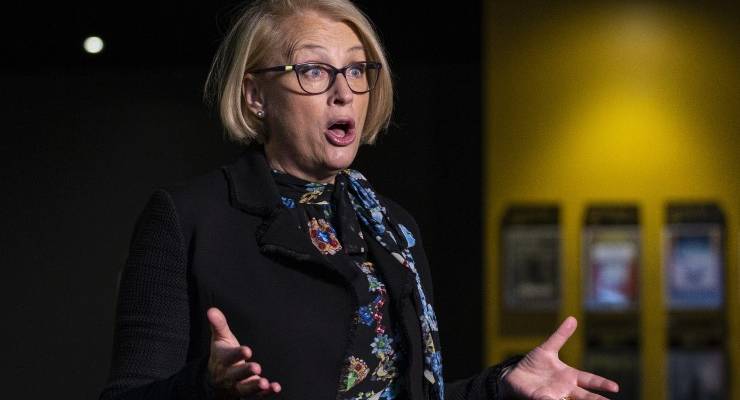
Timely disclosure of political campaign financing in Australia remains a long way off at the federal level, and many of the states aren’t much better.
As for councils, it is rare indeed for ratepayers to have any visibility on who is funding the campaigns of councillor candidates before they cast their votes.
But something different is happening in the City of Melbourne elections, following on from a pioneering experiment in voluntary early disclosure first tried at Melbourne town Hall in the 2016 elections.
First some history. In 2012, as then-lord mayor Robert Doyle pocketed more than $100,000 in donations from property developers to fund his $370,000 reelection campaign, The Age produced seven adverse page one stories about Doyle because he refused to disclose the identity of his donors early to the paper, as all other major candidates in that election did.
The 2012 campaign left a bad taste, particularly when regular subsequent conflict-of-interest declarations by team Doyle left the council without a quorum and unable to make decisions on various planning applications by property developers.
There was a consensus at town hall that something had to change, so in April 2016 the councillors unanimously backed a motion (full text can be found on page six of the relevant minutes) that developer donations be voluntarily shunned and the council or a suitable third party host an online register for early disclosure of donations.
However, the officers later received legal advice that such a register would breach the caretaker provisions because it would involve council illegally publishing information about candidates during the 2016 election period.
After alternative third parties such as the University of Melbourne were unable to commit to the job without a $50,000 fee, the officers proposed stalling the project, but the councillors responded with a $10,000 offer for any interested party to host the register (see details on page nine here).
The Age then stepped up to host the register and report on the content of the material, which most of the candidates complied with, although there were problems with inaccurate figures coming in from some parties.
Fast-forward to the 2020 City of Melbourne elections, and Doyle’s deputy, Arron Wood, is running for the top job, deciding to wedge Lord Mayor Sally Capp by backing a motion put up by Cr Jackie Watts calling for a similar donations register for the current campaign.
With the two Greens on board, it passed six to zero; Capp and four of her supporters abstained.
This was the first material vote that Capp has lost during her two years on council since she succeeded Doyle. She now has to decide whether to comply with the donations register, which is this time being run by Sean Car’s independent monthly print publications CBD News, Docklands News and Southbank News.
The first version went public on Monday with Wood disclosing almost $100,000 in donations and Greens about $6500.
Capp only revealed her eight-person ticket on Monday afternoon so it was a bit rough to expect her to reveal her donors last Monday. She and the other contenders should step up for the second deadline on 5pm next Monday.
The voluntary system isn’t perfect — the obvious way to game it is for donors to make pledges that aren’t actually paid until after the October 24 election day.
Victorian law requires candidates to lodge a donation disclosure form within 40 days of the election, and you can see from Capp’s 2018 donation return that she received a large number of donations from various corporate heavyweights when first elected.
Capp, a former Property Council CEO, has once again promised not to accept any property developer donations, although she said the same about gambling interests in 2018 and then accepted $3000 in food and beverage from the Woolworths-owned Young & Jacksons Hotel, and a further $4000 in donated office space from Crown Melbourne marketing manager Ann Peacock.
Let’s hope we find out earlier than December exactly who is funding what is shaping up to be her $200,000-plus reelection campaign.
As the incumbent in a pandemic with a strong team around her, broad business support and likely preferences from the Labor and Greens tickets, Capp should win comfortably.
But she doesn’t need secretive tactics around donations disclosure to leave a lingering smell.








You mean in addition to the odour from the gerrymander?
Assuming that candidates for councils are not in it for their health or to contribute to the public weal, why do they stand?
Sheer, self effacing altruism?
In addition to a lack of transparency there is always the questions of why any entity other than registered voters can make a donation to a political party. Our ‘leaders’ and their kind have been bought, lock stock and barrel, by the big donors (land sales being the latest example and that was small by comparison to some of the other boondoggles) but why, oh why, are corporations, unions or any other entity other than a voter allowed to donate?
If that made politicians more accountable to voters, even a limited subset, than to nameless bodies that would be a very good start.
It’s not as if our High Court decided in a Citizens United that corporations are people.
Or did they and we just weren’t told?